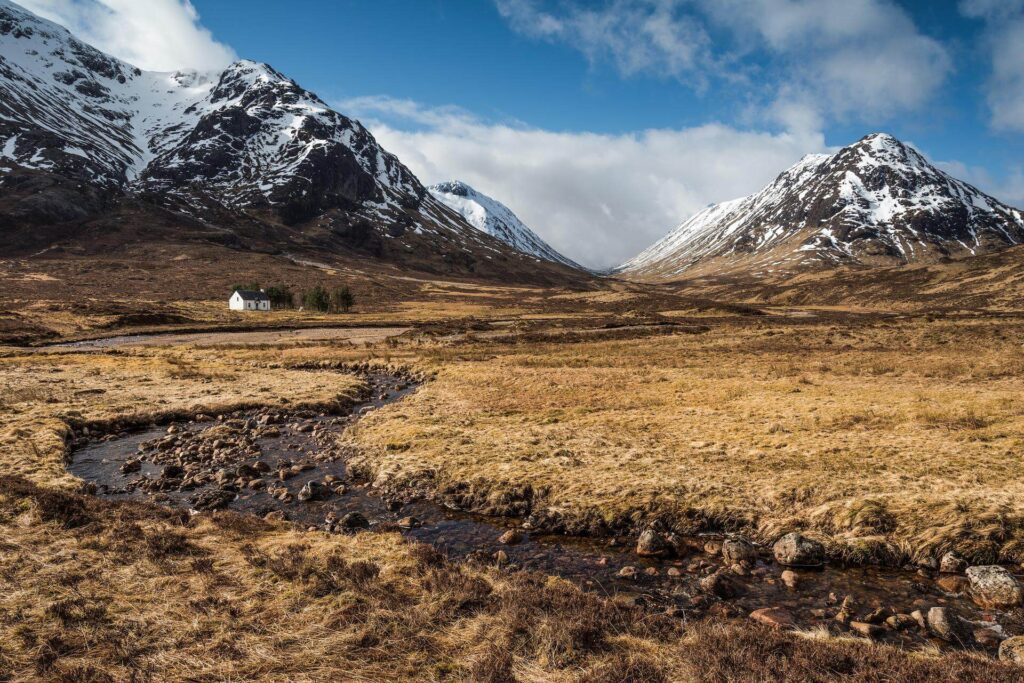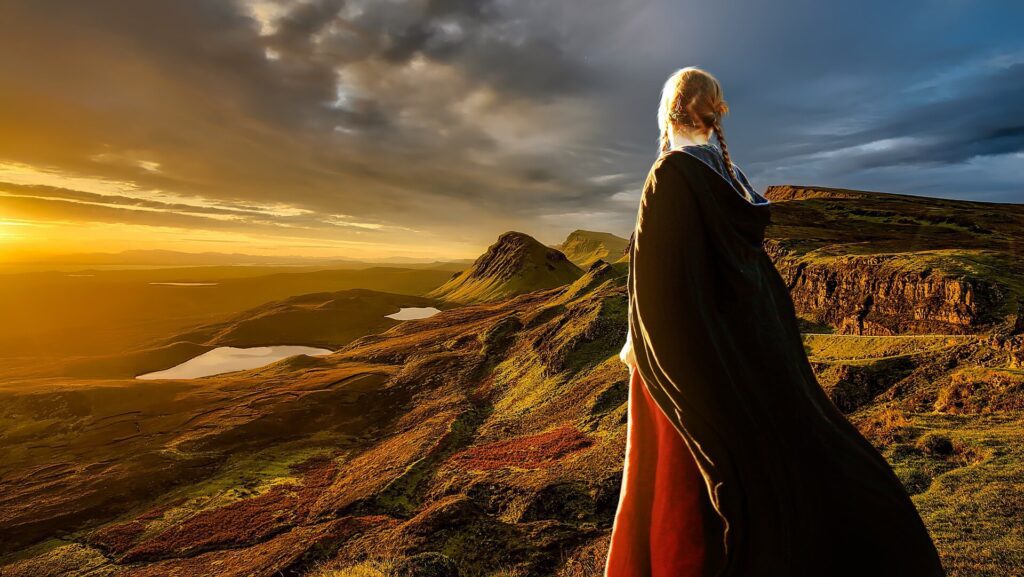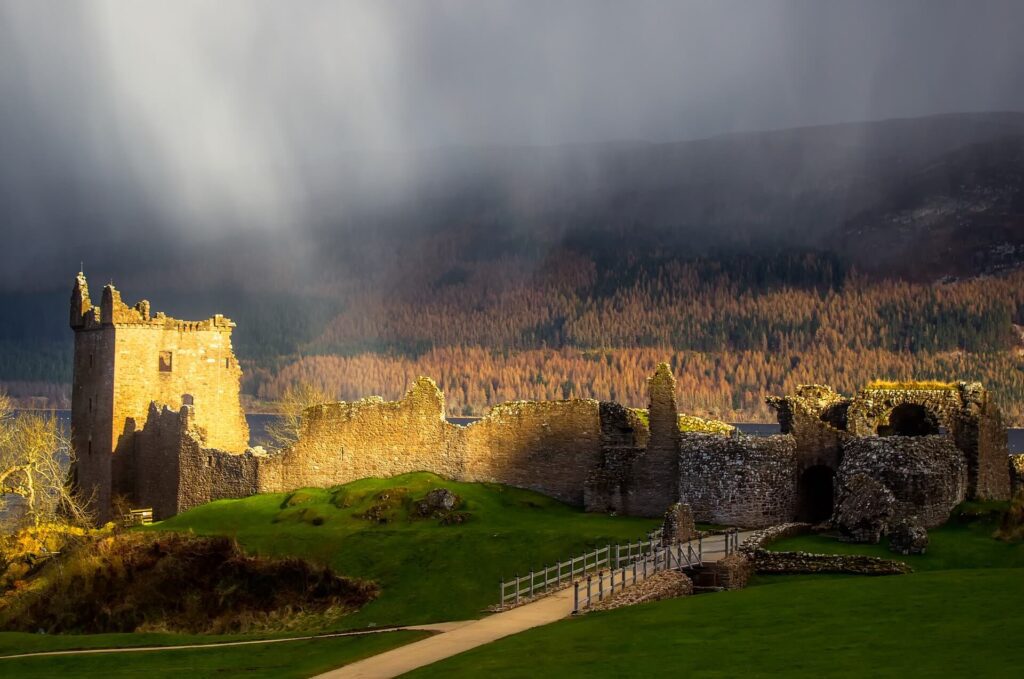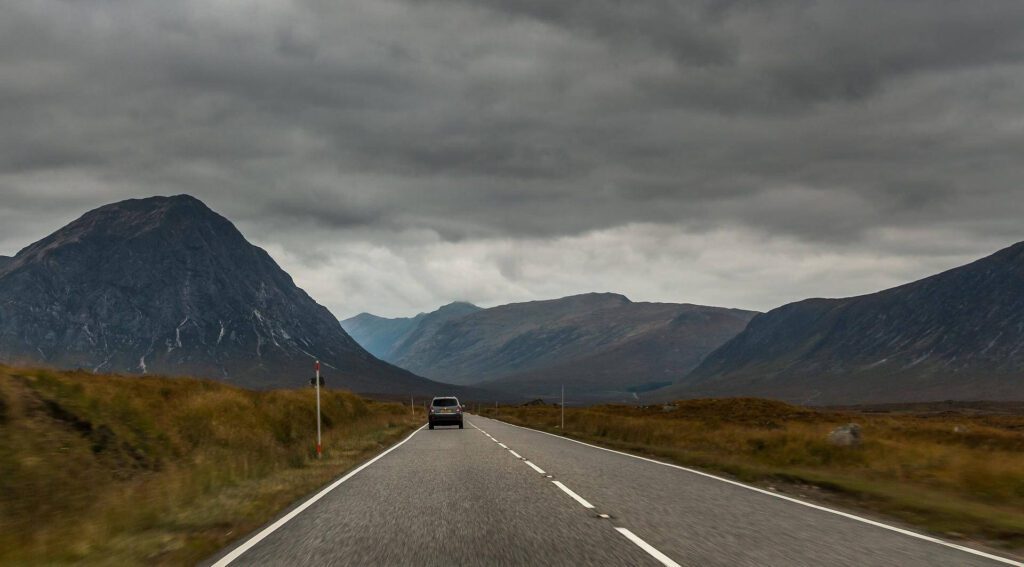Here at Bye by Car, we’ve been helping tourists explore Scotland for over a decade and it has been a joy to be part of so many visitors’ adventures. Among a few other countries in Britain and Ireland, we design self-drive tours of Scotland that unlock the sights, sounds, and secrets of this incredible country.
As travel begins in our imaginations first, it sometimes stops in our imaginations too, as we worry about the safety of the countries we visit. While travelling to another country is an inherently bold act with a certain amount of unavoidable risk, the threshold of risk (or danger) is different for every traveller.
While it is not our job to convince anyone to visit Scotland is entirely safe, we believe it is significantly safer than many popular travel destinations and we’d like to dispel any worries or fears here today. If anything we say inspires you to explore Scotland with our help and you have a few questions, please don’t hesitate to get in touch.
Scotland is Safe for Tourists

No country is completely safe, but the safety of tourists is what we should be concerned about today. Scotland can be considered a particularly safe country for visitors as injury statistics are small in comparison to many other popular destinations.
There is very little violent crime throughout the country, with the majority taking place in built-up urban areas that guests are highly unlikely to visit. There are some deprived areas of Edinburgh, Glasgow, Dundee, etc. that wouldn’t be considered safe, but no tourists are likely to accidentally find themselves there.
There is some petty crime (shoplifting, pickpocketing, etc) but, even then, there is comparatively less of this in Scotland than in nearby European countries.
Is Scotland Safe for Female Travellers?

Of course, it’s very unfortunate that women travellers have to consider safety even more carefully than men. This is not ideal and we look forward to a future where this isn’t the case.
While you should be suspicious of any guide that claims a destination is 100% safe for women, you can consider Scotland especially safe in comparison to most of its European neighbours. In big cities, you might like to take the usual precaution of avoiding walking alone at night, but, even then, the safety levels are still lower than many other western countries.
Is Scotland’s Weather Dangerous?

The short answer is that Scotland’s weather is almost never dangerous for tourists. Mostly, Scotland is infamous for its fickle, ever-changing weather — it can be sunny one second and rainy the next. But this just means that people huddle in cafes, tearooms, pubs, and restaurants, hiding from the rain. A spot of rain seldom hurts anyone.
Meanwhile, there is very little in terms of extreme weather in Scotland, unless you are an avid hiker and choose to climb some of its higher mountains. At higher altitudes, you might encounter snowstorms, strong winds, and other conditions that could be considered dangerous.
But it would require a complete in-depth guide to climbing safety to cover this topic, and that’s not the purpose of this article today. So, we’ll summarise that Scotland’s weather is mostly mild and should not be considered dangerous at all. Rarely too warm, rarely too cold, rarely too windy. The biggest danger is a sudden shower ruining your hairdo while you’re out exploring!
If you’d like to prepare for Scotland’s mild yet capricious weather, make sure to pack waterproofs and carry an extra layer with you in case it suddenly gets chilly. You can experience all four seasons in one day!
How Safe is Driving in Scotland?

Driving in Scotland is similar to the rest of the UK. Some statistics differ slightly between England, Wales, Northern Ireland, and Scotland, but the overall driving culture is similar. So, if you’ve driven elsewhere in Britain or Ireland, you’ll probably be comfortable enough.
We do drive on the left side of the road here, which can be confusing for some people who come from countries that drive on the right. But most people’s brains get used to driving on the left relatively quickly. If you’re worried about driving on the left, choosing an automatic rental car can really help as you don’t need to worry about changing gears manually with the “wrong” hand. This allows you to reserve most of your brain power for reading the road.
Driving on the other side of the road, exploring the remote and breathtaking countryside landscapes, narrow roads, etc., are part of the experience of travelling to these destinations. It is a privilege to do it at your own pace. You are on holiday; there is no rush, so you can take your time to get used to the car and make the most of your trip.
Passing Places
One aspect of driving in Scotland that some people worry about is driving on the narrow country roads in the Highlands. Many of the rural roads are especially narrow, often not leaving enough space for two average-sized cars. To allow for this, there are passing places — small recesses where the road widens. Passing places allow enough space for cars to pass one another.
Passing places function based on cooperation and goodwill. Many visitors report that they enjoy the friendliness and camaraderie that comes from negotiating the passing places on Scotland’s more rural roads. There isn’t much danger on these rural roads as long as you drive slowly and carefully.
Another potential driving safety concern in the Highlands is livestock. You may see the occasional sheep, cow, or goat on the road. And there are sometimes wild deer on the road, too. There will usually be signs warning you of this, but keep an eye out for animals and you should be fine.
Of course, there is more to discuss in terms of safety, but Scotland can be generally considered a safe place and we hope this short guide has convinced a few readers of this. If you have any further questions for us, please just contact us. Otherwise, we look forward to welcoming you to Scotland in the future!




